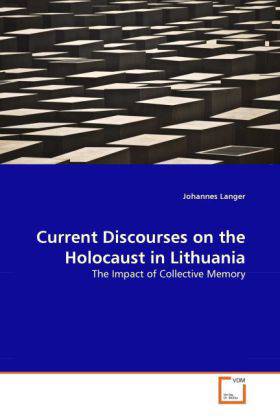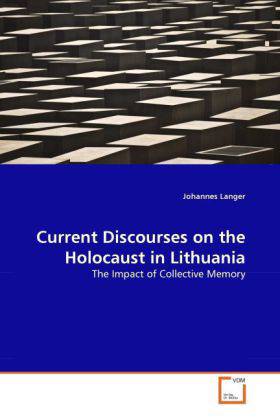
- Afhalen na 1 uur in een winkel met voorraad
- Gratis thuislevering in België vanaf € 30
- Ruim aanbod met 7 miljoen producten
- Afhalen na 1 uur in een winkel met voorraad
- Gratis thuislevering in België vanaf € 30
- Ruim aanbod met 7 miljoen producten
Zoeken
Current Discourses on the Holocaust in Lithuania
The Impact of Collective Memory
Johannes Langer
Paperback | Engels
€ 58,45
+ 116 punten
Omschrijving
Two competing narratives of the Holocaust in Lithuania exist in the nation's collective memory. Lithuanians largely follow a narrative that presents themselves as the victim of World War II, particularly during the Stalinist occupation. This view is in strong contrast to the Jewish memory because about 95% of Lithuania's Jewry was wiped out during the Nazi occupation. Although it was the Germans who organized and implemented the Holocaust, the mass killings of some 200,000 Jews could not have taken place that quickly and thoroughly from 1941 to 1944 without the local collaboration in Lithuania. Instead of a self-critical discourse about the past, Lithuanians still prefer to downplay the role of their compatriots. The main challenge is that the Jewish genocide is not recognized as part of Lithuania's history. Although Jews were Lithuanian citizens, it seems that they were aliens and not natives to the country. A collective memory of the Holocaust in Lithuania which critically reflects the past will remain a forgotten discourse to Lithuanians, most likely also in the near future.
Specificaties
Betrokkenen
- Auteur(s):
- Uitgeverij:
Inhoud
- Aantal bladzijden:
- 144
- Taal:
- Engels
Eigenschappen
- Productcode (EAN):
- 9783639317879
- Verschijningsdatum:
- 16/12/2010
- Uitvoering:
- Paperback
- Formaat:
- Trade paperback (VS)
- Afmetingen:
- 152 mm x 229 mm
- Gewicht:
- 222 g

Alleen bij Standaard Boekhandel
+ 116 punten op je klantenkaart van Standaard Boekhandel
Beoordelingen
We publiceren alleen reviews die voldoen aan de voorwaarden voor reviews. Bekijk onze voorwaarden voor reviews.











